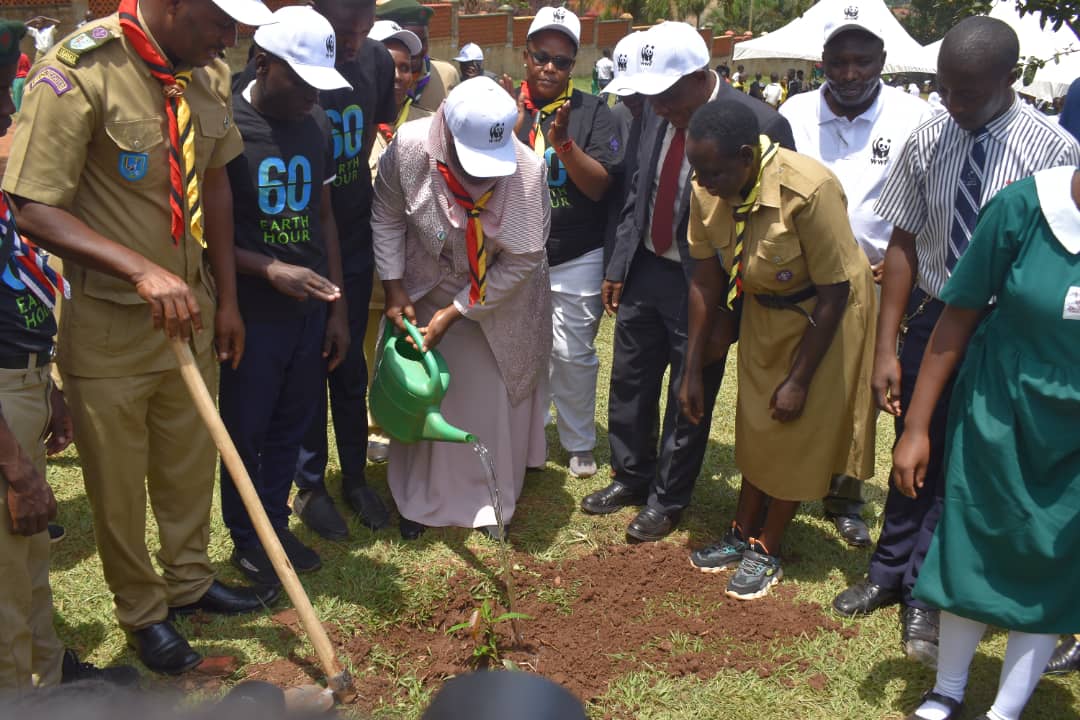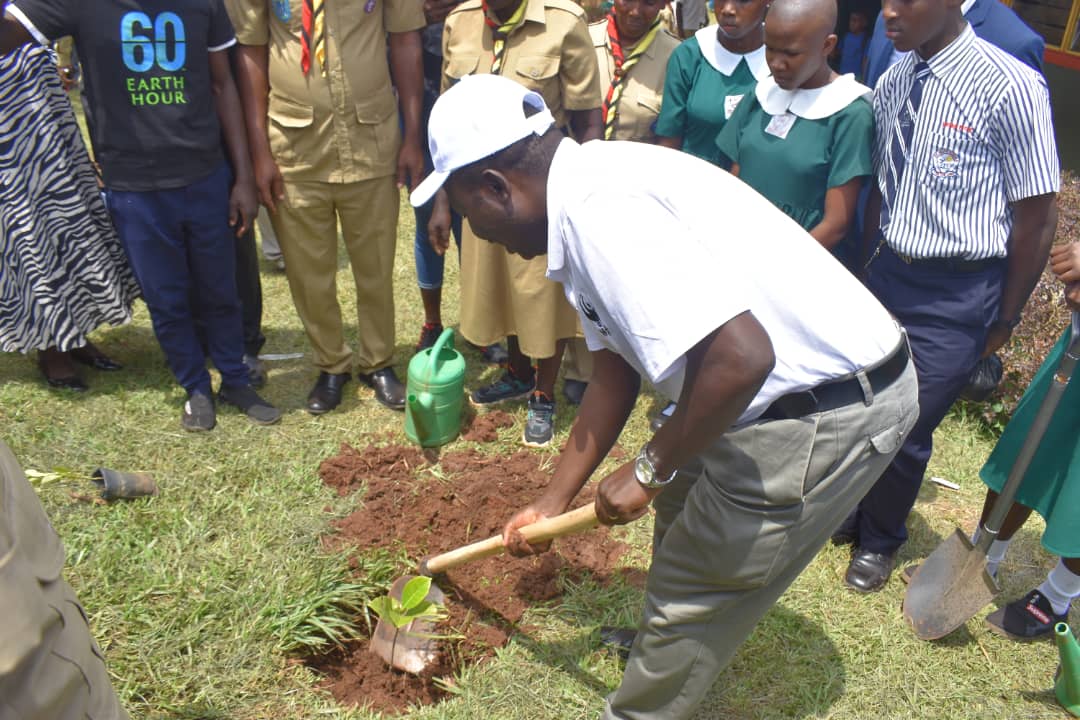
KAMPALA – The Minister for Kampala and Metropolitan Affairs Minsa Kabanda has revealed that authorities in Kampala Capital City Authority (KCCA) are currently exploring a ban on single-use plastic bags and plastic containers for alcohol and other beverages.
Speaking on Friday at the launch of the Earth Hour activities at Kisaasi Primary School in Kampala, Minister Kabanda said plastic waste is becoming disastrous to urban due to poor disposal practices.
“KCCA is currently exploring a ban on single-use plastic bags and a ban on single-use plastic containers for alcohol and other beverages,” the Minister told environmentalists.
“I want to call upon all Ugandans living in Kampala to be part of creating a sustainable and healthy Kampala by greening their surroundings and stopping pollution, specifically plastic pollution,” she added.
“Protecting our environment also means a substantial expansion of our tree planting efforts – the health of our urban forest is critically important for our quality of life and our environment.”
According to research conducted by the World Climate School’s Uganda chapter, more than 75% of used plastic bottles end up in landfills, lakes, and rivers, which is seriously damaging to the environment.
Plastic bottles have gradually replaced glass bottles because of their lower cost.
Surprisingly, modern society has gotten accustomed to them, but the manner in which they are disposed of in most parts of Uganda is causing an environmental disaster.

Mr. Simon Peter Weredwong, who heads the World Wide Fund for Nature Uganda country office said urged environmentalists to use the power of the people to turn a single day today into thousands and millions of days of action and awareness, creating a domino effect of impact that continues well beyond today.
“Earth Hour is a fantastic celebration of people, the planet, and nature, and this year we want as many people as possible to feel inspired and empowered to play a part, no matter how small. By switching off from daily habits and distractions of nature and doing something positive for the planet. Together, through one incredible moment of global unity, let’s ensure that 2023 is a year of change in order to reach our 2030 nature-positive goal,” he said.
Weredwong said Earth Hour is mobilizing individuals, businesses, and governments to be a part of the conversation and solutions needed to build a healthy, sustainable, and future planet for all.
He also called on the plastic manufacturers to take responsibility for single-use plastics that is threatening the ecosystem of Uganda with constant pollution.
He also asked the Ugandan Parliament to enact a law that will cause businesses packing their products in single-use plastics to be directly responsible for their litter.
“If things continue at this rate, our farmers will have nowhere to grow crops in 10 years from now,” he said.
According to research conducted by the World Climate School’s Uganda, chapter, more than 75% of used plastic bottles end up in landfills, lakes, and rivers, which is seriously damaging to the environment.






